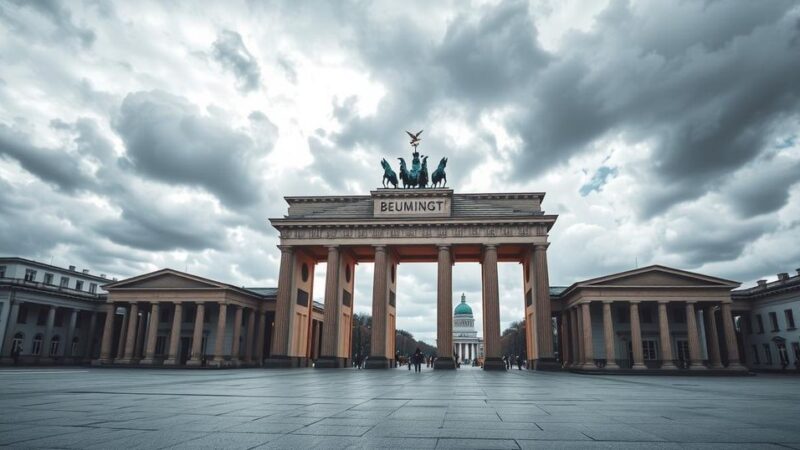Father Humphrey Tatah Mbuy, a prominent Cameroonian priest, likened certain elements of U.S. electoral rhetoric to apartheid, criticizing the derogatory language used by candidates like Donald Trump towards immigrants. He underscored the persistence of racial discrimination, drawing on theological principles of human equality and reflecting on historical injustices, urging a reevaluation of current political dialogues and their implications.
YAOUNDÉ, Cameroon – A prominent Cameroonian priest and academic, Father Humphrey Tatah Mbuy, has expressed concern over the echoes of apartheid in the rhetoric of some candidates in the current U.S. presidential election. Speaking during his weekly radio sermon titled “Faith Seeking Understanding,” Father Mbuy did not explicitly name individuals but clearly alluded to the inflammatory language used by former President Donald Trump, who has notoriously referred to immigrants in derogatory terms, labeling them as “rapists” and “bloodthirsty criminals.” Father Mbuy criticized such rhetoric as indicative of lingering racial discrimination, stating that it reflects a troubling continuity of apartheid’s ideologies. He elaborated that while the apartheid system was formally dismantled in South Africa, the remnants of institutionalized racial discrimination persist both in Africa and within global politics. As a scholar at the Catholic University of Bamenda, Father Mbuy invoked historical parallels, recalling how the Dutch Reformed Church once attempted to justify apartheid, framing it as divinely sanctioned. He contended such a belief system is fundamentally flawed, emphasizing a theological perspective grounded in the Biblical affirmation of human equality, asserting that all individuals are created in the image of God and thus equally deserving of dignity and respect. Furthermore, Father Mbuy underscored the ongoing neocolonial dynamics between Africa and the West, noting Pope Francis’s calls for Western nations to cease the exploitation of the African continent. He poignantly remarked on Africa’s paradoxical position as the cradle of civilization while simultaneously being relegated to the periphery of global political and economic discourse. His comments serve as a vital reminder of the need for vigilance against all forms of racial injustice, as well as a clarion call for solidarity within the global community aimed at eradicating discrimination in all its forms, thereby fostering a more equitable society.
The remarks presented by Father Humphrey Tatah Mbuy address the resurgence of rhetoric synonymous with racial discrimination within political dialogues in the United States, specifically relating to immigration and identity politics. This discourse parallels historical contexts of apartheid, particularly as articulated in South Africa, where institutionalized racial segregation was rationalized through theological and ideological means. Father Mbuy’s insights invite reflection on contemporary instances of racial bias and the enduring implications of colonial legacies that continue to affect global interactions, particularly between Africa and Western powers.
In summary, Father Mbuy’s critique of U.S. political rhetoric unveils a critical examination of the intersections between race and politics, drawing parallels to the historical injustices of apartheid. His remarks advocate for a renewed commitment to equality and justice, reminding the global community of the moral imperative to challenge all forms of discrimination. By contextualizing the current political landscape within the frameworks of theological understanding and historical precedent, Father Mbuy advocates for a more just and equitable future for all.
Original Source: cruxnow.com





